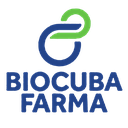Executive Secretary

9th International Scientific Conference on Agricultural Development and Sustainability
7th Symposium of Rural Innovation Processes
Abstract
In the midst of a global food and health crisis (Covid -19 pandemic and its effects) exacerbated by the wars in Ukraine and Russia, and in the face of imminent challenges such as the growth of the world population, higher levels of consumption of natural resources and energy, With unequal food consumption and high rates of unusable agro-industrial waste, a paradigm shift is imposed, the necessary and urgent transition from a linear production model, towards the Circular Economy approach that, in synergy with Agroecology, is identified according to the criteria of the authors, as pillars to achieve food sovereignty in Cuba. Therefore, the objective of this work is to state key concepts for a better understanding of the topic in question, such as: circular economy, agroecology, local development, food sovereignty and security, sovereign and sustainable local food systems. Methodological design: it was based on an extensive review of articles, scientific journals, and books, in the last 10 years, taking into account specialist criteria regarding concepts and terms used in the research. Conclusions: The transition from conventional agriculture to sustainable, friendly and environmentally responsible agriculture is proposed. The circular economy and agroecology constitute pillars towards food sovereignty and nutritional education, hence the imperative need for the development and implementation of local development projects that support their methodological bases in the use of the circular economy and agroecology as fundamental tools towards food and sustainable sovereignty in Cuba.
Resumen
En medio de una crisis alimentaria y sanitaria global (pandemia Covid -19 y sus efectos) acrecentada por las guerras en Ucrania y Rusia, y ante retos inminentes como el crecimiento de la población mundial, más grandes niveles de consumo de recursos naturales y energía, con un consumo de alimentos desigual y altos índices de desechos agroindustriales inaprovechables, se impone un cambio de paradigma, el tránsito necesario y urgente desde un modelo lineal de producción, hacia la Economía Circular enfoque que en sinergia con la Agroecología se identifican a criterio de las autoras, como pilares para alcanzar la soberanía alimentaria en Cuba. Por consiguiente, el objetivo del presente trabajo es enunciar conceptos claves para una mejor comprensión del tema en cuestión, tales como: economía circular, agroecología, desarrollo local, soberanía y seguridad alimentaria, sistemas alimentarios locales soberanos y sostenibles. Diseño metodológico: se basó en una amplia revisión de artículos, revistas científicas, y libros, en los últimos 10 años, se tienen en cuenta criterios de especialistas en cuanto a conceptos y términos empleados en la investigación. Conclusiones: Se propone la transición de una agricultura convencional hacia una Agricultura sostenible, amigable y responsable con el medio ambiente. La economía circular y la agroecología constituyen pilares hacia la soberanía alimentaria y la educación nutricional, de ahí la necesidad imperiosa del desarrollo e implementación de proyectos de desarrollo local que sustenten sus bases metodológicas en el uso de la economía circular y la agroecología como herramientas fundamentales hacia la soberanía alimentaria y sostenible en Cuba.
About The Speaker

Mónica Mohedano Rivas

Discussion

